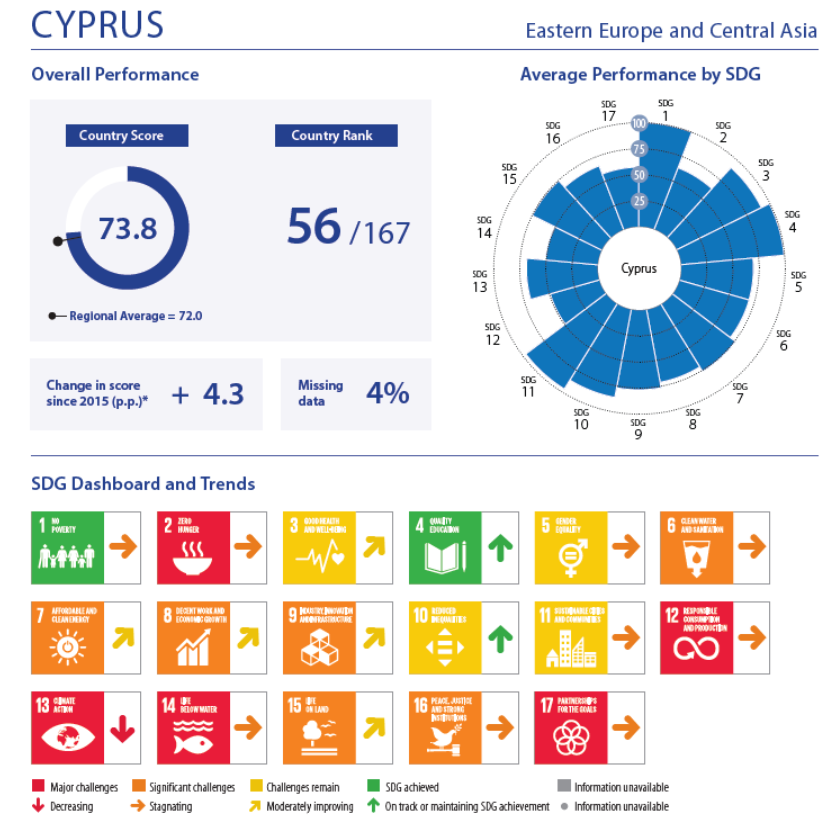Cyprus has ranked bottom among EU member states in the latest Sustainable Development Report (SDR), released by the Sustainable Development Solutions Network (SDSN). The island placed 56th globally out of 167 countries, with a score of 73.8, up slightly from 72.9 in 2024.
The 2025 report, published earlier this summer, introduced a simplified SDG Index based on 17 headline indicators.
Since 2015, Cyprus has improved by 4.3 percentage points, compared with an average rise of 5.1 points across the European Union.
Earlier this year, the European Sustainable Development Report (ESDR) also ranked Cyprus near the bottom, 32nd out of 34 countries with a score of 62.7.
Although the two reports use different methodologies, both point to what SDSN Cyprus described as “serious structural weaknesses” in meeting the United Nations’ Sustainable Development Goals (SDGs).
Among the most pressing challenges are excessive nitrogen use in agriculture, low women’s representation in parliament, high water consumption through imports, and a limited share of renewable energy in the energy mix.
Other problem areas include workplace fatalities embodied in imports, low R&D investment, high inequality, weak e-waste recycling, significant CO2 emissions, overfishing, limited protected areas on land and sea, and issues linked to arms exports and press freedom.

Cyprus also scores poorly on development aid and tax transparency.
The European report identified similar concerns, placing additional weight on climate action and waste management.
SDSN noted that some constraints stem from Cyprus’ unique circumstances, such as the divided status of the island, which reduces the proportion of protected wildlife areas, and its geographical vulnerability to water scarcity caused by climate change.
Yet, most weaknesses, it said, could be addressed through stronger national policy, improved institutional coordination, and greater involvement of civil society.
Priority areas include climate action, responsible consumption and production, and marine conservation.
Despite the setbacks, Cyprus has recorded progress in areas such as poverty reduction and quality education, with improvements also visible in reducing inequalities.
Over recent years, SDSN Cyprus has sought to close the gap by working with government, business and community groups, promoting education on sustainability, engaging youth, and sharing best practices.
SDSN said that it would continue to assist authorities, the private sector and civil society in embedding the SDGs into their policies and daily operations.






Click here to change your cookie preferences